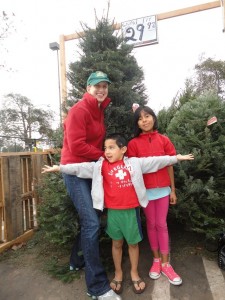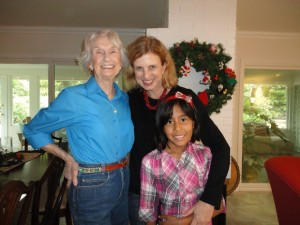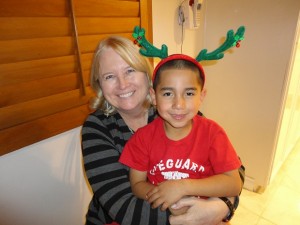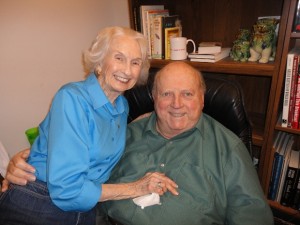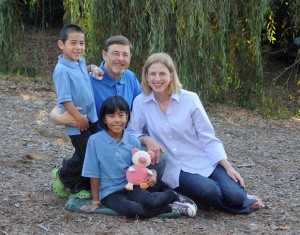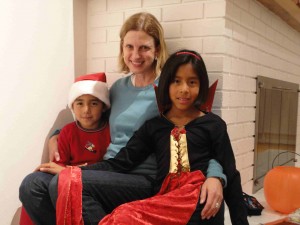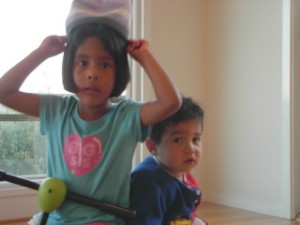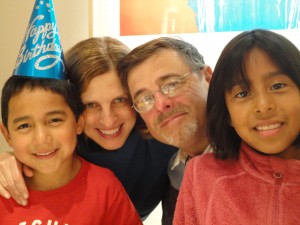 This month, my baby boy Mateo turned six. Our celebration was small–just family and my sister, Patrice, and another adoptive mom and her two girls who stopped by later for cake. Lucky for me, we’ve never had gigantic parties for either of our children, so their expectations aren’t too grand. (Although, I have to admit, with my book launch this month, and readings scheduled back-to-back, I focused less on organizing a birthday than usual. I promised Mateo we’d celebrate again after the holidays.)
This month, my baby boy Mateo turned six. Our celebration was small–just family and my sister, Patrice, and another adoptive mom and her two girls who stopped by later for cake. Lucky for me, we’ve never had gigantic parties for either of our children, so their expectations aren’t too grand. (Although, I have to admit, with my book launch this month, and readings scheduled back-to-back, I focused less on organizing a birthday than usual. I promised Mateo we’d celebrate again after the holidays.)
His favorite present? A ream of clean, white, copy paper. You have to understand, in our house, unless absolutely necessary, we only use paper that is recycled–and by that I mean paper that has been printed already, with type on one side. Especially after living in Guatemala, I am careful about not wasting anything, and paper is high on my list. So a sheet of clean, white, unblemished paper is a rare item in these parts. Mateo was jubilant.
My friend, the other adoptive mom who stopped by, noted how her girls don’t know the actual dates of their births. For birth certificates and celebrations, they must rely on best guesses. Her comment made me realize, again, how birth stories are different for children who are adopted. Mateo’s story with us, like Olivia’s story, begins in a hotel lobby in Guatemala City. But he carries a history with him that we don’t yet know, that maybe only his birth mother remembers. I thought of his other mom often on Mateo’s big day. My greatest hope is that she knows her son is happy and healthy, and loved.
A few months ago, I wrote a blog about Mateo. He was only five then–a baby! In case you missed it, I’m posting it again here. Happy birthday, Mateo. My beautiful son.
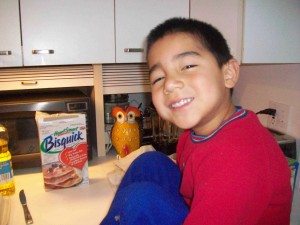
About Mateo, I say “He wakes up happy.” He’s always been that way, ever since we first met him as a baby in Guatemala City. If we each have an essence, Mateo’s is “joy.” He radiates positive energy and goodwill and exuberance. My friend Julia recently called him “merry.” The label fits.
Why is that? What makes a person who he is? So far, I know very little about Mateo’s biological family. Does he inherit his temperament from his other mother? Is his biological father a humorous man? Does Mateo’s approach to life have anything to do with my behavior, or the influence of my husband and daughter? What makes Mateo, Mateo?
In a little while, I’ll go over to my son’s bottom bunk and whisper that it’s time to get up. He’ll stir and sigh, pull the covers over his head. “Five more minutes,” he’ll say. And five minutes later, he’ll get up, groggy but already thinking positive. “Is today show-and-tell? Is tomorrow the weekend?”
“Show-and-tell is Monday,” I’ll say. “Tomorrow starts the weekend.”
“Can we have pancakes?” He’ll clasp his hands together to show me he’s pleading.
“We can.”
He’ll jump out of bed and run around in a circle. “Pancakes! Pancakes!”
And I’ll say, as I always do, “Mateo, may you always be this happy.”


 ShareThis
ShareThis
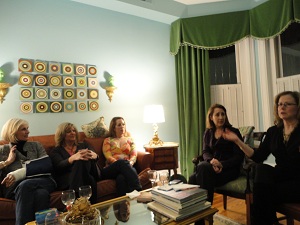






 ShareThis
ShareThis